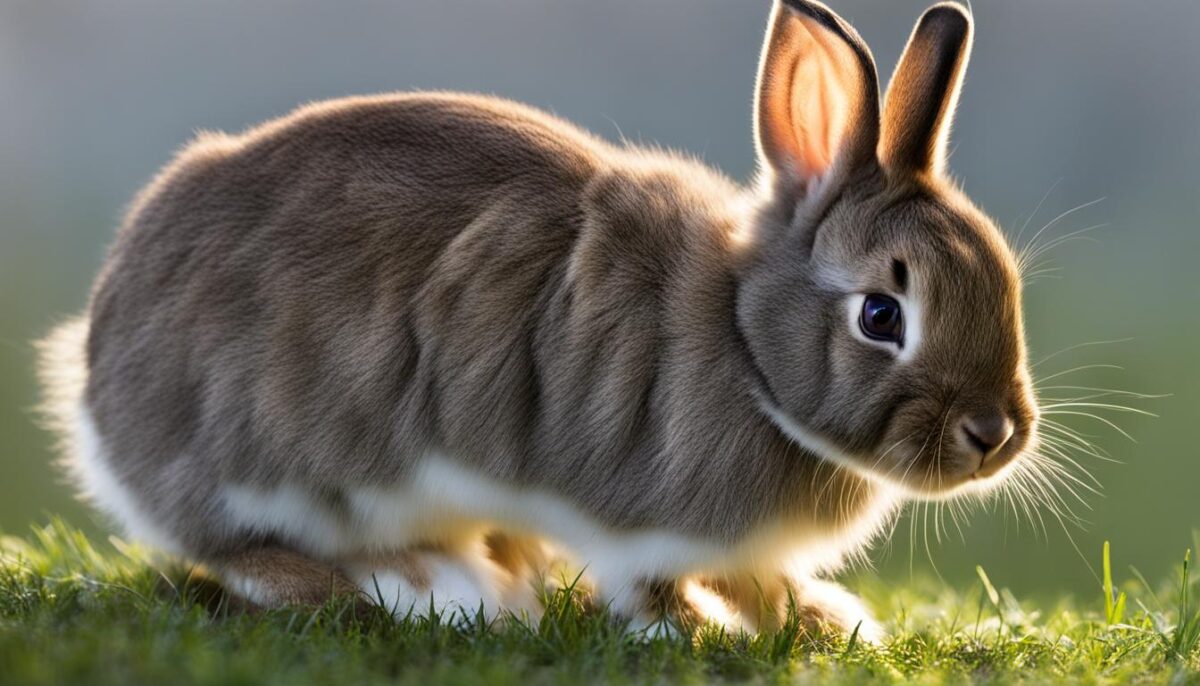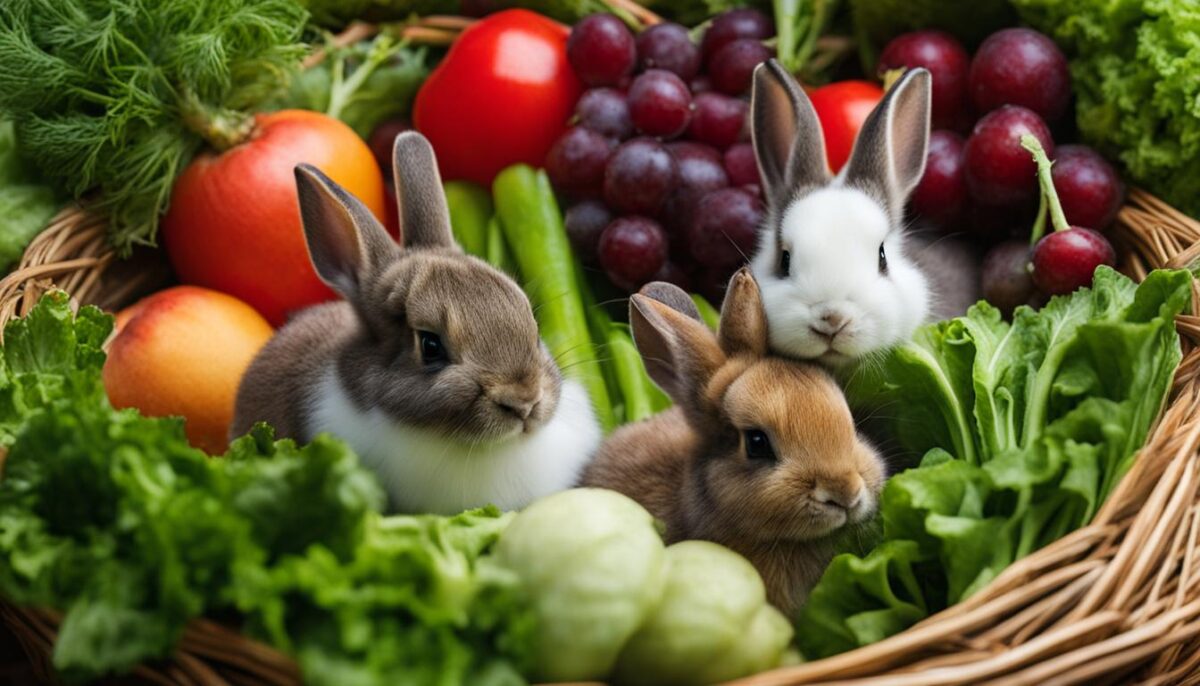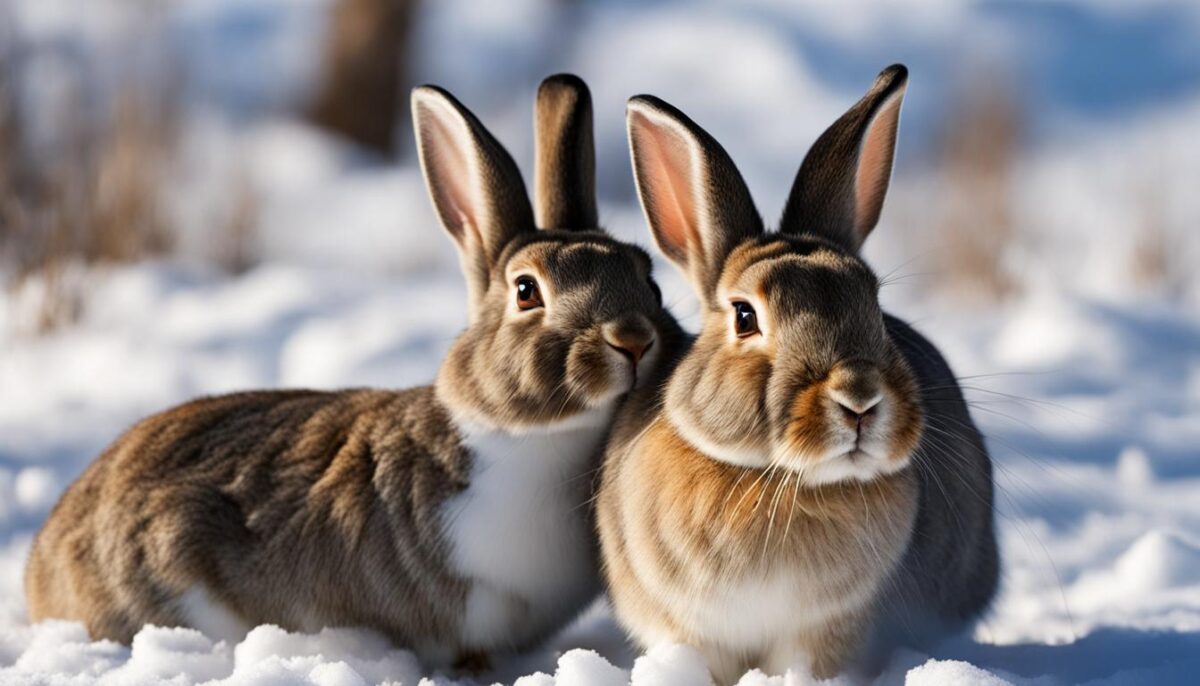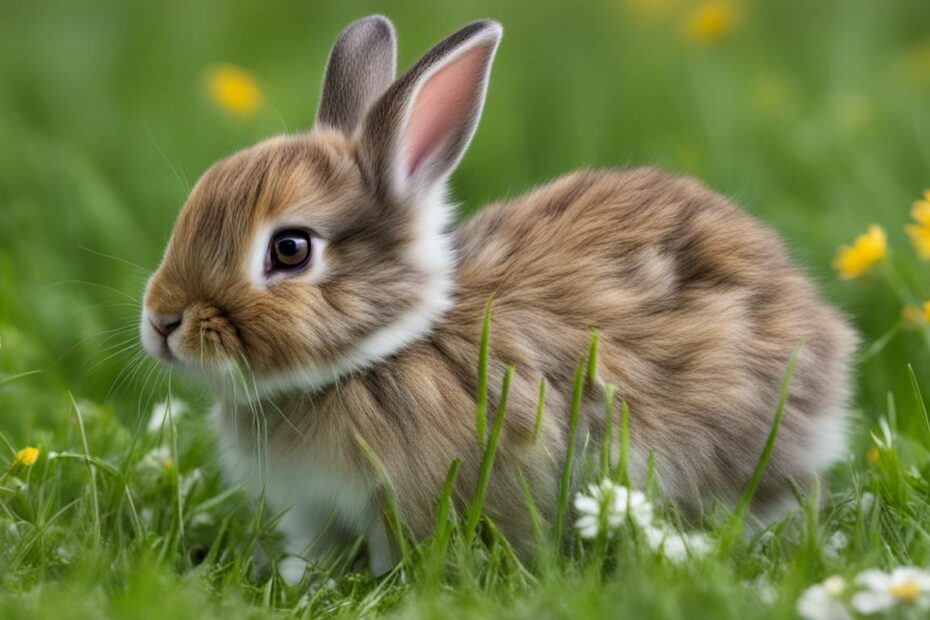Premature death in baby rabbits can be a heartbreaking and all too common occurrence. Understanding the causes of these deaths and taking preventive measures can significantly increase the chances of baby rabbits reaching their full lifespan. In this article, we will explore the various factors that contribute to the premature death of baby rabbits at 3 weeks, as well as provide valuable insights into how to prevent such tragedies through proper care and nutrition.
Key Takeaways:
- The top causes of premature death in baby rabbits at 3 weeks include teeth problems and digestive upsets.
- Providing a proper diet, regular vet visits, and neutering and vaccinating rabbits can help prevent premature deaths.
- Head tilt, respiratory infections, cancer, fox attacks, and other factors can also contribute to baby rabbit mortality.
- Abandonment and starvation may occur if the mother rabbit is stressed or unable to care for a large litter.
- Diet, environmental factors, parasites, and contagious infections are additional considerations in preventing premature rabbit deaths.
Teeth Problems in Baby Rabbits
Teeth problems, such as malocclusion and jaw abscesses, pose a significant threat to the health and survival of baby rabbits. In fact, a study found that around 23% of rabbits surveyed died or had to be euthanized due to teeth-associated problems. These issues are often inherited, highlighting the importance of selecting rabbits from knowledgeable breeders who prioritize dental health.
Malocclusion, or misalignment of the teeth, can result in improper wear and overgrowth, leading to difficulty in eating, pain, and potential damage to the oral cavity. This can be particularly problematic for young rabbits who are still developing their teeth. Besides malocclusion, jaw abscesses can also arise, causing swelling, discomfort, and the risk of systemic infection.
To prevent teeth problems in baby rabbits, it is crucial to provide appropriate dental care. This includes regular dental check-ups by a knowledgeable veterinarian, who can identify and address any dental issues early on. Additionally, offering rabbits proper chew toys and a diet rich in fiber can help promote natural wear and keep their teeth in good condition.
| Teeth Problems in Baby Rabbits | Prevention and Care |
|---|---|
| Malocclusion | Choose rabbits from knowledgeable breeders who prioritize dental health. Provide regular dental check-ups and a diet rich in fiber. |
| Jaw Abscesses | Monitor rabbits for any signs of swelling or discomfort around the jaw area. Seek immediate veterinary attention if abscesses are suspected. |
By being proactive in addressing dental issues and ensuring proper care, we can significantly improve the chances of baby rabbits thriving and living a long, healthy life.
Digestive Upsets in Baby Rabbits
Digestive upsets, such as mucoid enteritis and diarrhea, are common causes of premature death in baby rabbits, accounting for approximately 17% of deaths. These conditions can be triggered by various factors, including sudden diet changes, feeding a low-fiber diet, or bacterial infections. It is crucial for rabbit owners to be aware of these digestive issues and take necessary precautions to prevent them.
Mucoid enteritis is a condition characterized by the inflammation of the rabbit’s intestines, leading to the production of excessive mucus and diarrhea. This condition can be fatal if left untreated. Diarrhea, on the other hand, can result from improper diet, stress, or the presence of harmful bacteria in the rabbit’s digestive system.
Prevention of Digestive Upsets
To prevent digestive upsets in baby rabbits, it is important to gradually change their diet to minimize the risk of gastrointestinal disturbances. Abrupt changes in diet can shock the rabbit’s delicate digestive system, leading to an imbalance of gut bacteria and potential diarrhea. The transition should be done over several days, gradually introducing new foods while reducing the old ones.
Feeding a high-fiber diet is also essential for maintaining a healthy digestive system in rabbits. Good quality hay should be available at all times to promote proper digestion and prevent digestive upsets. In addition to hay, fresh vegetables and limited amounts of pellets can be included in the rabbit’s diet to provide a balanced nutritional intake.
Hygiene plays a vital role in preventing digestive upsets as well. Regular cleaning of the rabbit’s living area, including the litter box and food bowls, helps minimize the risk of bacterial contamination. Providing clean, fresh water is also crucial to maintain the rabbit’s hydration and overall health.
Table: Common Causes and Prevention of Digestive Upsets
| Causes | Prevention |
|---|---|
| Sudden diet changes | Gradually transition to new foods over several days |
| Feeding a low-fiber diet | Provide good quality hay at all times |
| Bacterial infections | Maintain clean living environment, including regular cleaning of litter box and food bowls |
By taking proactive measures to prevent digestive upsets in baby rabbits, owners can significantly improve their chances of survival and overall well-being. Regular monitoring of the rabbit’s diet, providing appropriate nutrition, and maintaining a clean living environment are key factors in preventing these common digestive issues.
Head Tilt and Central Nervous System Problems
Head tilt and other central nervous system problems are observed in approximately 10% of baby rabbits. These symptoms can be distressing for both the rabbits and their owners, as they affect the rabbit’s balance and coordination. While the exact cause of head tilt is uncertain, two potential culprits have been identified: E. cuniculi, a parasite, and inner ear infections caused by pasteurella, a common bacterial infection in rabbits.
The presence of E. cuniculi in rabbits can lead to a range of central nervous system issues, including head tilt, incoordination, and even paralysis. The parasite is usually contracted from infected mothers or through contact with contaminated urine or feces. Inner ear infections caused by pasteurella can also result in head tilt and other neurological symptoms.
Diagnosing and treating head tilt and central nervous system problems in baby rabbits require veterinary expertise. Your veterinarian may perform a thorough examination, including blood tests and imaging studies, to determine the underlying cause. Treatment options can range from medications to manage the symptoms and address the infection to supportive care to improve the rabbit’s quality of life.

Potential causes of head tilt in rabbits:
- E. cuniculi infection
- Inner ear infections caused by pasteurella
It is essential to consult a veterinarian if your baby rabbit exhibits head tilt or any central nervous system problems. Early intervention and appropriate treatment can help improve the rabbit’s quality of life and increase the chances of recovery.
Table: Comparison of E. cuniculi and Inner Ear Infections
| Aspect | E. cuniculi | Inner Ear Infections |
|---|---|---|
| Causes | Parasite contracted from infected mothers or contaminated environment | Bacterial infection, often caused by pasteurella |
| Symptoms | Head tilt, incoordination, paralysis | Head tilt, loss of balance, other neurological symptoms |
| Transmission | Usually from infected mothers or contact with contaminated urine or feces | Direct contact with infected rabbits or contaminated environment |
| Treatment | Antiparasitic medication, supportive care | Antibiotics, supportive care |
Other Causes of Premature Death in Baby Rabbits
In addition to teeth problems and digestive upsets, there are several other causes of premature death in baby rabbits. Understanding these causes and taking preventive measures can help ensure the survival and well-being of these delicate creatures.
Respiratory Infections
Respiratory infections are a common cause of mortality in baby rabbits, accounting for a significant percentage of deaths. These infections can be caused by bacteria, viruses, or a combination of both. It is crucial to ensure a clean and hygienic environment for the rabbits and provide proper ventilation to minimize the risk of respiratory infections.
Cancer
Cancer is another cause of premature death in baby rabbits. Like humans, rabbits can develop various types of cancers, including lymphoma, leukemia, and tumors. Regular veterinary check-ups and early detection are essential for managing and treating cancer in rabbits.
Fox Attacks
While many baby rabbits are kept as pets, some are still exposed to the dangers of the wild. Fox attacks are one such danger that can result in fatal injuries. It is crucial to provide proper enclosures and secure habitats for baby rabbits to protect them from predators like foxes.
| Causes of Premature Death | Percentage |
|---|---|
| Teeth Problems | 23% |
| Digestive Upsets | 17% |
| Respiratory Infections | 15% |
| Cancer | 12% |
| Fox Attacks | 8% |
| Other | 25% |
By addressing these other causes of premature death, such as respiratory infections, cancer, and fox attacks, we can improve the chances of baby rabbits reaching adulthood and living longer, healthier lives.
Reasons for Abandonment and Starvation
Baby rabbits can face a tragic fate if they are abandoned by their mother or left to starve due to various reasons. One common cause is the stress experienced by mother rabbits, which can lead them to abandon their offspring. Additionally, large litter sizes can overwhelm the mother, making it challenging for her to provide adequate care for all the babies. Understanding these factors and taking preventative measures is crucial in ensuring the survival of baby rabbits.
Stress plays a significant role in the behavior of mother rabbits, and it can be triggered by various factors such as predator presence, loud noises, or changes in their environment. When stressed, mother rabbits may neglect or abandon their babies, leaving them vulnerable to starvation and other dangers. Creating a stress-free environment for mother rabbits, with proper shelter and minimal disturbances, can help prevent abandonment and increase the chances of survival for the baby rabbits.
Another factor that can contribute to abandonment and starvation is the size of the litter. If a litter is too large, the mother may struggle to provide enough milk and care for all the babies adequately. This can result in some of the babies being neglected or not receiving sufficient nutrition, leading to their demise. Monitoring the size of the litter and taking appropriate steps, such as fostering or hand-rearing some of the babies if necessary, can prevent abandonment and ensure the well-being of the entire litter.
Table: Factors contributing to abandonment and starvation in baby rabbits
| Factors | Explanation |
|---|---|
| Mother Rabbit Stress | Stressful conditions can lead to mother rabbits abandoning their babies. |
| Large Litter Size | An excessive number of babies can overwhelm the mother, causing her to neglect some of them. |
Impact of Diet on Baby Rabbit Survival
Proper nutrition is crucial for the survival and well-being of baby rabbits. The diet of a mother rabbit during pregnancy and lactation directly affects the health of her offspring. Sudden changes in the diet can lead to digestive upsets and other complications in the babies. It is important to provide a gradual transition to new foods to minimize the risk of dietary issues.
A diet that is low in fiber or lacks necessary nutrients can result in conditions such as hypocalcaemia, which is a deficiency of calcium in the blood. This can have serious consequences for the growth and development of baby rabbits. To ensure proper nutrition, it is recommended to feed a balanced and vet-recommended diet that includes fresh hay, a variety of greens, and a small amount of pellets.
Feeding baby rabbits an appropriate diet from an early age helps to establish good eating habits and promotes healthy growth. It is important to monitor their food intake and ensure they are eating enough to meet their nutritional needs. Regular veterinary check-ups can also help identify any dietary deficiencies or issues and provide recommendations for appropriate supplementation if necessary.
| Dietary Guidelines for Baby Rabbits |
|---|
| Provide unlimited access to fresh hay |
| Introduce a variety of fresh greens gradually |
| Limit the amount of pellets to prevent overeating |
| Ensure a constant supply of clean, fresh water |
| Discuss specific dietary needs with a veterinarian |
By following these dietary guidelines and providing a balanced and nutritious diet, you can help promote the survival and overall health of baby rabbits. Remember to consult with a veterinarian for any specific dietary concerns and to ensure that the nutritional needs of your baby rabbits are being met.

Environmental Factors and Overexposure
Environmental factors can significantly impact the premature death of baby rabbits. Both extreme cold weather and hot weather pose risks to their well-being, making it crucial to provide a suitable sheltered environment. In cold weather, overexposure can lead to hypothermia and other respiratory issues, while in hot weather, heatstroke and dehydration become major concerns.
Cold Weather and Baby Rabbits
During cold weather, it is essential to protect baby rabbits from low temperatures. Provide them with a warm and insulated enclosure, preferably indoors or in a well-insulated hutch. Adding bedding such as straw or hay can help create a cozy environment. Additionally, avoid placing the hutch directly on the ground, as the cold earth can further chill the rabbits.
Hot Weather and Baby Rabbits
On the other hand, hot weather can also be detrimental to baby rabbits. Rabbits are highly susceptible to heatstroke, especially if they are exposed to direct sunlight or a lack of shade. Ensure that their enclosure is well-ventilated and shaded. Adding a fan or misting system can provide extra relief during heatwaves. It’s crucial to monitor their water intake, as dehydration can occur rapidly in high temperatures.
| Weather Condition | Risks | Preventive Measures |
|---|---|---|
| Cold weather | Hypothermia, respiratory issues |
|
| Hot weather | Heatstroke, dehydration |
|
By protecting baby rabbits from extreme weather conditions, owners can reduce the risk of overexposure and the associated health complications like pneumonia, heatstroke, and hypothermia. Providing a suitable environment is essential for their overall well-being and can help prevent premature deaths.

Parasites and Contagious Infections
Baby rabbits are vulnerable to various parasites and contagious infections that can significantly impact their health and survival. It is crucial for rabbit owners to be aware of these threats and take appropriate measures to prevent their occurrence.
Coccidiosis in Baby Rabbits
Coccidiosis is a common parasitic disease that affects rabbits, including baby rabbits. It is caused by a microscopic organism known as coccidia, which can be present in the environment or transmitted from an infected rabbit. Coccidiosis can cause diarrhea, weight loss, and even death if left untreated. Preventive measures include maintaining clean and hygienic living conditions for the rabbits, regularly cleaning their cages, and avoiding contact with infected rabbits or contaminated environments. Additionally, consult with a veterinarian to discuss appropriate treatments and preventive medications.
Staphylococcosis in Rabbits
Staphylococcosis is a contagious bacterial infection that can affect rabbits of all ages, including baby rabbits. It is caused by Staphylococcus bacteria, which can be transmitted through direct contact with infected rabbits or contaminated objects. Symptoms of staphylococcosis in baby rabbits may include swollen joints, abscesses, and respiratory issues. To prevent the spread of this infection, it is essential to maintain proper hygiene, regularly clean and disinfect the rabbits’ living areas, and isolate any infected rabbits. Consult with a veterinarian for appropriate treatments and preventive measures.
Preventing Contagious Infections in Rabbits
In addition to coccidiosis and staphylococcosis, rabbits can be susceptible to other contagious infections, such as pasteurellosis and myxomatosis. These infections can cause severe health issues and significantly impact the survival of baby rabbits. To prevent the spread of contagious infections, it is crucial to maintain a clean and hygienic environment, regularly disinfect cages and accessories, and avoid introducing new rabbits without proper quarantine and health checks. Additionally, consult with a veterinarian to ensure rabbits are vaccinated against common infectious diseases.
| Parasites and Contagious Infections | Prevention Measures |
|---|---|
| Coccidiosis | – Maintain clean living conditions – Avoid contact with infected rabbits – Consult with a veterinarian for treatments and preventive medications |
| Staphylococcosis | – Maintain proper hygiene – Regularly clean and disinfect living areas – Isolate infected rabbits – Consult with a veterinarian for treatments and preventive measures |
| Preventing Contagious Infections | – Maintain clean and hygienic environment – Disinfect cages and accessories regularly – Quarantine and health checks for new rabbits – Vaccinate rabbits against common infectious diseases |
Steps to Prevent Premature Rabbit Deaths
Preventing premature deaths in baby rabbits requires a proactive approach to rabbit care and nutrition. By following these steps, you can increase the chances of your rabbits living a long and healthy life.
1. Choose reputable sources for your rabbits
When acquiring rabbits, it’s important to buy from reputable breeders or adoption centers. This ensures that the rabbits have been bred and raised in a healthy environment, reducing the risk of inherited health issues. Avoid purchasing rabbits from unknown or untrustworthy sources.
2. Provide a suitable habitat
Create a safe and comfortable environment for your rabbits. Make sure their enclosure is spacious enough for them to move around and has suitable bedding materials. Provide hiding spots and toys for mental stimulation. Regularly clean the habitat to prevent the buildup of bacteria and parasites.
3. Feed a balanced diet
Proper nutrition is crucial for the health and longevity of rabbits. Provide a balanced diet that includes fresh hay, high-quality rabbit pellets, and a variety of fresh vegetables. Avoid sudden diet changes, as these can cause digestive upsets. Consult with a veterinarian for specific dietary recommendations for your rabbits.
4. Ensure regular veterinary care
Regular veterinary check-ups are essential for monitoring the health of your rabbits and detecting any potential issues early on. Vaccinations, neutering, and parasite prevention should be part of the routine care. Seek immediate veterinary attention if you notice any signs of illness or distress in your rabbits.
| Steps | Preventive Measures |
|---|---|
| Choose reputable sources | Buy from reputable breeders or adoption centers |
| Provide a suitable habitat | Create a safe and comfortable environment |
| Feed a balanced diet | Include fresh hay, quality pellets, and vegetables |
| Ensure regular veterinary care | Regular check-ups, vaccinations, neutering, and parasite prevention |
By following these steps, you can significantly reduce the risk of premature deaths in baby rabbits. Remember to always prioritize the health and well-being of your rabbits and seek professional advice whenever needed.

Conclusion
Ensuring the survival of baby rabbits requires diligent rabbit care and preventive measures. While some causes of premature death may be unavoidable, many can be prevented through proper attention and care. By providing a suitable environment, balanced nutrition, and regular veterinary care, owners can increase the chances of baby rabbits’ survival.
Rabbit care should include selecting reputable breeders and monitoring the mother rabbit’s stress levels and litter size. Additionally, gradual diet changes, a balanced diet, and good hygiene practices are crucial for preventing digestive upsets and contagious infections.
Preventing premature deaths in baby rabbits is a responsibility that can be achieved through education and proactive measures. Owners must be knowledgeable about rabbit care and nutrition to provide the best possible care for their rabbits. Taking the necessary steps, such as creating a suitable habitat, ensuring regular veterinary care, and practicing preventive measures, can significantly increase the chances of baby rabbits surviving and thriving.
FAQ
What are the major causes of premature death in baby rabbits?
The major causes of premature death in baby rabbits include teeth problems, digestive upsets, head tilt, respiratory infection, cancer, fox attacks, and more.
How can teeth problems in baby rabbits be prevented?
Teeth problems in baby rabbits can be prevented by selecting rabbits from knowledgeable breeders and providing appropriate dental care.
What can cause digestive upsets in baby rabbits?
Digestive upsets in baby rabbits can be caused by sudden diet changes, feeding a low-fiber diet, or bacterial infections.
What are the potential causes of head tilt in baby rabbits?
The potential causes of head tilt in baby rabbits include E. cuniculi, a parasite, and inner ear infections caused by pasteurella, a common bacterial infection.
What are some other causes of premature death in baby rabbits?
Other causes of premature death in baby rabbits include respiratory infections, cancer, fox attacks, sudden death with no symptoms, and more.
Why do baby rabbits sometimes die from abandonment and starvation?
Baby rabbits can die from abandonment and starvation if their mother rabbits abandon them due to stress or if the litter is too large for the mother to care for adequately.
How does the diet of the mother rabbit affect the survival of baby rabbits?
The diet of the mother rabbit during pregnancy and lactation can have a direct impact on the survival of baby rabbits. Sudden changes in diet and a lack of necessary nutrients can contribute to digestive upsets and conditions like hypocalcaemia.
What environmental factors can contribute to the premature death of baby rabbits?
Exposure to extreme cold or heat can lead to overexposure and put baby rabbits at risk of conditions like pneumonia. Providing a suitable, sheltered environment is important to protect them.
What are some common parasites and contagious infections that can affect baby rabbits?
Baby rabbits can be susceptible to parasites like coccidia and contagious infections like staphylococcosis. Keeping them in clean and hygienic conditions and preventing contact with infected rabbits is crucial to prevent these diseases.
What steps can be taken to prevent premature deaths in baby rabbits?
To prevent premature deaths in baby rabbits, it is important to buy rabbits from reputable sources, provide a suitable habitat, feed a balanced diet, and ensure regular veterinary care, including vaccinations and neutering.
How can owners increase the chances of survival for baby rabbits?
By being knowledgeable about proper rabbit care and nutrition, providing a suitable environment, a balanced diet, and regular veterinary care, owners can help increase the chances of survival for baby rabbits.


